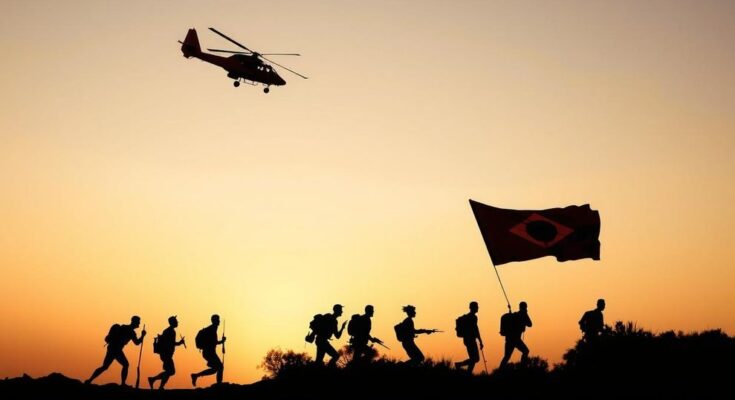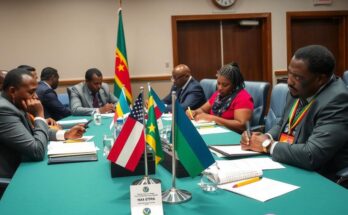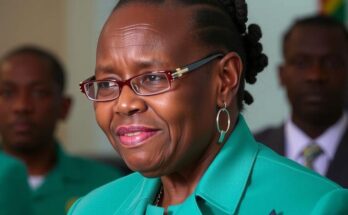The remains of 42 South African freedom fighters, who died in exile in Zimbabwe and Zambia during the anti-apartheid struggle, have been returned to South Africa. This repatriation seeks to provide closure for families, honor those who fought against oppression, and educate future generations about the struggle for freedom. A ceremonial homecoming is scheduled before the remains are reburied across the country, alongside ongoing efforts to repatriate more remains from various nations.
The remains of 42 South African freedom fighters, who perished in exile during the anti-apartheid struggle in Zimbabwe and Zambia, were ceremoniously returned to South Africa on Wednesday. This repatriation, conducted at the Waterkloof Air Force Base in Pretoria, involved government officials and family members receiving the exhumed remains for reburial in their homeland. The initiative is a critical part of a governmental program aimed at providing closure to families whose loved ones died away from home while laboring in the underground efforts of the African National Congress (ANC) and the Pan Africanist Congress (PAC). Prior to the abolition of apartheid in 1994, many activists fled South Africa to seek military training abroad and to evade arrest by the apartheid authorities. The ANC, led by figures such as Nelson Mandela, had relocated its headquarters to Lusaka, Zambia, where significant underground support systems existed. Tragically, many of these activists died in exile and were subsequently buried in foreign lands. Among the distinguished individuals whose remains were repatriated is Duma Nokwe, along with Florence Mophosho and Basil February. Deputy President Paul Mashatile emphasized during a Heritage Day event that this repatriation aims to educate future generations about the sacrifices made during the anti-apartheid struggle. He articulated that this endeavor serves as a component of a national memory project intended to “commemorate, celebrate, educate, promote, preserve, conserve, and provide a durable testament to South Africa’s road to freedom.” President Cyril Ramaphosa is scheduled to host a homecoming ceremony for these remains on Friday, prior to their handover to families for reburial throughout the nation. Furthermore, the government announced ongoing efforts to repatriate additional remains from various countries, including Lesotho, Ethiopia, Tanzania, Angola, and Russia. Deputy Defense Minister Bantu Holomisa expressed hope that these efforts would extend to more individuals who died under harsh conditions, stating, “We welcome them back to connect with their families.”
The repatriation of the remains of South African freedom fighters underscores the enduring legacy of the anti-apartheid struggle, as well as the governmental commitment to honoring those who sacrificed their lives for national liberation. Many activists were forced into exile during the apartheid period, seeking safety and the means to continue their resistance against a repressive regime. Their eventual return and reburial in South Africa reflects a broader effort to reconcile with the past and honor the historical contributions of fallen leaders to the nation’s freedom.
This significant repatriation serves not only to honor the memory of courageous individuals who fought against apartheid but also embodies an essential step toward healing for their families and communities. The efforts of the South African government to bring home those who sacrificed their lives in the struggle for freedom exemplify a commitment to remembrance and education for future generations. This initiative stands as a testament to the nation’s journey toward reconciliation and a collective memory of the sacrifices made for justice and equality.
Original Source: www.independent.co.uk




